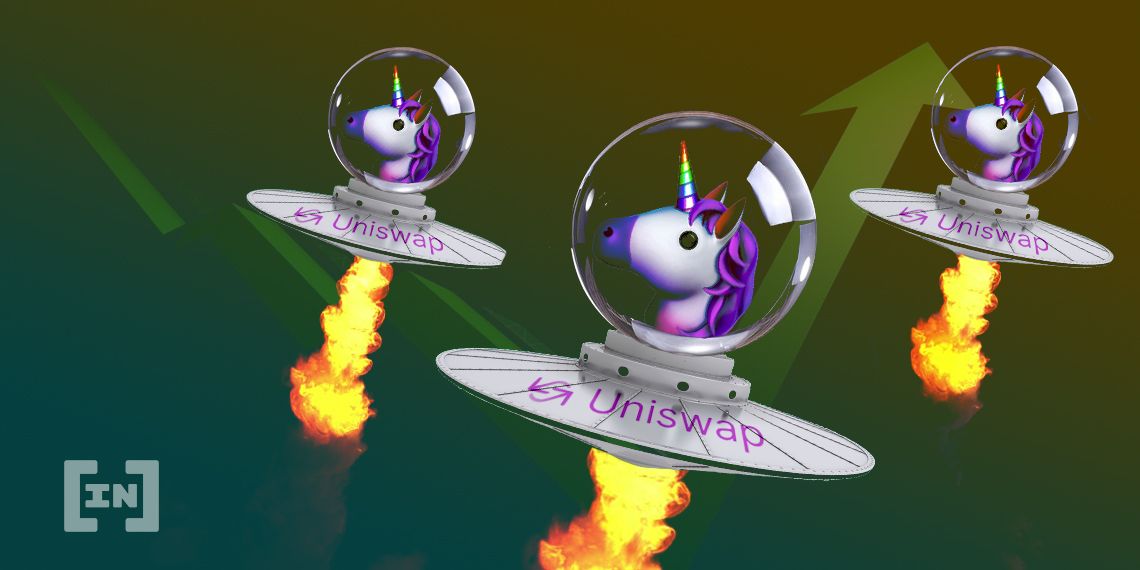A recent report has delved into the premise that Uniswap could be inadvertently devaluing tokens by forcing trades to route through privileged liquidity pools.
The investigation by DFOhub alleges that Uniswap is centralized by design and is allowing “vampiric arbitrage bots” to deplete the prices of certain tokens. Automated trading bots that are arbitraging between tokens could be causing the problem, it added.
“Uniswap’s routing is — unintentionally — not only preventing the growth of certain projects, but actually draining them of value.”
Vampire Bots Loading Up
The report goes on to explain that Uniswap’s token routing is not centralized, as it prioritizes pairs tied to just six tokens as opposed to scanning the entire array of liquidity pools. The tokens, which it calls the six arbiters of Uniswap, are WETH, DAI, USDC, USDT, COMP, and MKR. It added that this has been hardcoded into the Uniswap system to ensure the prices of these tokens are kept in synchronization with each other but are out of sync with every other pair. Essentially, the router will bypass high-liquidity pairs that exclude these six privileged tokens, even if going through them would be the most profitable path. The research elaborated that normal trades only occur among pairs tied to those six tokens, and prices only change within those pairs and not any of the others, which opens up price disparities between them.“Arbitration bots swoop in, profiting off the difference, stripping them of value and taking off with free ETH.”It uses an example of how arbitrage bots can drain ETH from pools outside of those six, adding that it is an irrevocable loss of value.

What Can be Done?
Co-inventor at DFOhub, Alessandro Mario Lagana Toschi, who penned the report, stated that the Uniswap team needs to take this problem seriously. One suggestion, which probably wouldn’t be popular, would be reverting to Uniswap v1 where everything is routed through ETH alone. Another option was to counter arbitrage by having another bot in a system DFOhub was working on called QuickScope. The first version proved unsuccessful, as the vampire bots make money on micro-transactions, spending $5 in ETH to make $8, for example, and using a Solidity function called “Delegate Call” that reduces the gas fee. A QuickScope v2 bot is now under development and being tested by the team. DFOhub is hoping to work closely with Uniswap in order to solve this problem that is draining ETH and devaluing tokens on the world’s most popular DEX.
Top crypto platforms in the US
Disclaimer
In line with the Trust Project guidelines, this price analysis article is for informational purposes only and should not be considered financial or investment advice. BeInCrypto is committed to accurate, unbiased reporting, but market conditions are subject to change without notice. Always conduct your own research and consult with a professional before making any financial decisions. Please note that our Terms and Conditions, Privacy Policy, and Disclaimers have been updated.

Martin Young
Martin Young is a seasoned cryptocurrency journalist and editor with over 7 years of experience covering the latest news and trends in the digital asset space. He is passionate about making complex blockchain, fintech, and macroeconomics concepts understandable for mainstream audiences.
Martin has been featured in top finance, technology, and crypto publications including BeInCrypto, CoinTelegraph, NewsBTC, FX Empire, and Asia Times. His articles provide an in-depth analysis of...
Martin Young is a seasoned cryptocurrency journalist and editor with over 7 years of experience covering the latest news and trends in the digital asset space. He is passionate about making complex blockchain, fintech, and macroeconomics concepts understandable for mainstream audiences.
Martin has been featured in top finance, technology, and crypto publications including BeInCrypto, CoinTelegraph, NewsBTC, FX Empire, and Asia Times. His articles provide an in-depth analysis of...
READ FULL BIO
Sponsored
Sponsored
